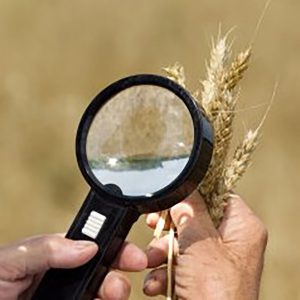COCERAL Mycotoxins Survey: Warns of challenges for cereal sector

Prevalence of different mycotoxins is set to lead to an increasing percentage of grains previously seen as fit for human consumption downgraded to animal feed.
Members of the European trade organisation COCERAL said they expected a number of constraints to be imposed on the farming sector but that EU regulatory levels for mycotoxins in food are unlikely to be met in future due to an increase in in prevalence and co-occurrence of different mycotoxins.
Unpredictable food and feed safety issues
An increased prevalence and occurrence of mycotoxins will lead to unpredictable food and feed safety issues, and huge economic repercussions for its members (increased sampling, testing, recalls, rejections etc.), leading ultimately to changes in food and feed security patterns at EU and international level, according to COCERAL’s 2023 Mycotoxins Survey synthesis report.
Understanding grain collectors & international traders
In a change to previous years, the report for the first time has a section that aims to understand the point of view of grain collectors and international traders in the following areas:
- The measures they take to prevent and mitigate mycotoxins risks in operations, and the ones asked by their customers
- The measures their suppliers declare to prevent and mitigate mycotoxins risks in the field
- Estimating which mycotoxins might become more prevalent in the future (next 10 years) in the country/ies where grains and oilseeds are sourced, also in relationship with effect of climate change
- The constraints experienced or expected when new regulatory levels for mycotoxins are going to be proposed/voted in the European Union.

Climate change and mycotoxins levels
Most of the members expect climate change to have a significant impact on mycotoxin levels and prevalence in the next decade in the countries they collect or source grains and oilseeds, which is already taking place in the increasingly common heat waves in southeastern Europe. The largest changes are likely to be:
- Higher levels of Aflatoxins and ochratoxins in corn
- Deoxynivalenol, sum of T-2 and H-T2 toxins in all cereals
- Zearalenone and Alternaria toxins in oilseeds
- A growing concern on the rise is from Tilletia spp (agent of karnal blunt) and rust fungi.
Recommendations to farmers
The report said its members would encourage farmers to make sure such constraints would be contained by:
- Recommending farmers to:
- Performing meteorological surveys during critical stages of the crops (i.e., flowering)
- Use only certified seed material
- Use better crop rotation practices
- Use of allowed fungicides at the right dose and right time (i.e. when the weather impose it)
- Harvest the grains when they are ready and dry and cool the grains slowly and gently in storage
- Use good storage practices (cooling, ventilation) to avoid storage mycotoxins to occur
- Use of contract specifications (purchase and sale) and internal monitoring programs
- Perform (even more) sampling and testing at all stages (with focus at collection and pre-shipment), always using skilled personnel (i.e., surveyors) and accredited laboratories when using confirmatory test methods such as HPLC, LC-MS-MS.
New tools
On the other hand, new tools should be soon made available for collectors and traders to assess mycotoxins occurrence in grains and oilseeds better and faster, although currently there is a lack of reliable quick tests for certain mycotoxins such as ergot alkaloids.
More cooperation with EFSA, FAO and the scientific community is also needed, say members, particularly concerning the forecast models so they can understand how climate change and mycotoxins prevalence and co-occurrence are related.











